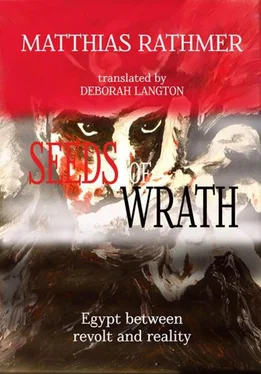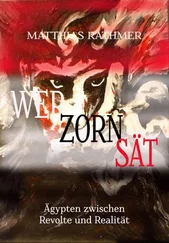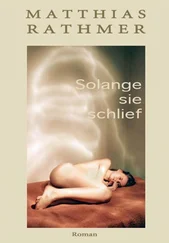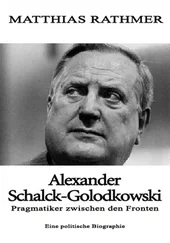When, after decades spent underground as an illegal organisation, they replaced the President with Mohammed Morsi after their 2012 election win, they tried everything, and did so in a totally undemocratic way, to ensure the power they had won was exercised by them alone and without challenge. Only about one third of Egyptians had voted to bring them to power. And a dialogue with those who had not voted for them did not take place. They made a high-speed assault on the constitution so as to establish their vision of an Islamic Egypt. Their inadequacy and incompetence became increasingly apparent. Once the mass protests started, they clung greedily and immovably to their office and their ideology.
Beyond dispute is this. Sisi’s military coup brought a premature and unlawful end to initial training in democracy. Now the Egyptians are actually living under a dictatorship again, although they themselves like to see it rather differently given their political inexperience. But the violence emerging from the Muslim Brothers and the terrorist brigades with whom they are friends, is revealing yet more about them. Anyone who, in wrathful brutality and unscrupulous greed blows up and murders his political opponents, loses every right to a fair debate. Their justification for attacking ‘only’ state representatives and institutions is in itself a tacky farce. Even soldiers have families, even judges are human. The terror wrought by the Muslim Brothers shows uniquely how little a conservative form of Islam under brand Morsi would have been able to stand democracy.
All of a sudden many Egyptians were shocked at what they themselves had brought about. Because they had not taken part in the voting, they were now supposed to live under the strict rules of a conservative form of Islam. Just as the protests grew daily, so the wrath of the masses was stirred once more. Many are still enthused that it was Sisi and his army who drove out Morsi and his followers. The former General became saviour of the whole nation.
That Sisi doesn’t want real democracy either and reacts to violence with violence is viewed by most Egyptians as a necessary evil. He has created order. And that includes all those unprepared to bend. Now, because Muslim Brothers are, as far as is possible, switched off, he goes in pursuit of the secular opposition the moment they dare criticise his regime. In the name of a global security, of the new hard line, all is allowed. Many of the activists of old who once took the streets by storm are still mysteriously vanishing. Then they turn up again weeks later after interrogation, torture and threat. Very few people have any concerns about this. Egypt has become the torture capital, quietly, secretly, and yet so brutishly. Most Egyptians can live with that. It’s called nameless cowardice in civil affairs.
In the weeks and months before 25 January 2016, state repression of liberals, or groups with different thinking, had attained a degree of severity and intransigence that was unknown even in the Mubarak era. Anyone not with us, is against us and must be a Muslim Brother. That’s the watchword in vogue. Human rights organisations ascribe to Sisi and those who serve him the greatest wave of intimidation of dissidents in modern history. There are announcements almost daily about organisations being searched and shut down, and detention of activists, bloggers, photographers and journalists. There’s no doubt about it. The regime is worried.
During the run-up to the fifth anniversary of the so-called ‘Revolution’ every critical voice capable of stirring up the masses is expected to be silenced. Social networks already indicate that this dictatorial course of action creates more disquiet and resentment. At all levels of the population, resistance is getting louder. Like before. And then, one day, it’s back, the wrath of the people. Wrath born of wrath.
The mood suggests that a certain sullenness has spread amongst the one-time rebels and their followers. The people who once raged with such energy, who fought on the city streets with a pride in justice, who wanted a democracy but with only a vague idea of what it is and yet so passionate and enthusiastic. Those with control over their existence have long become indifferent. They’ve got enough money or they’ve left the country, or they wearily calm down, wallow in individualism and go their own, narcissistic way.
And then there are all the meek and the mild, those who know nothing because they have never had any schooling, no teachers to stimulate their minds and talents, together with all the poor who prefer to place their fate in the hands of their god because what’s needed in life’s daily battles is some support. In the final analysis it has turned out like it always has in the history of mankind, when the individual has no idea how to come to a suitable arrangement with the state and, in any case, did not know which worldly powers had pulled strings behind the scenes.
The approach back then was to do everything at top volume and in glorious technicolour. Energetic, combative, true to the Egyptian mentality, they wanted democracy yesterday, tomorrow at the latest, in its entirety. It was seen on the internet as a vision of salvation, presented primarily by young, western-oriented citizens from the cities. They’d forgotten about all the others, the old, the mass of believers, the people outside the city, the uneducated and all those with less knowledge. And they had nothing more than impetuous desires, no knowledge, no experience, no new political culture, no new parties ready to form a union or a coalition, no figures of leadership, no structures, no dedicated constitution, no power-sharing and absolutely no politically mature citizens.
And when, after the first free elections, the Muslim Brotherhood came into government, hundreds and thousands stepped up to the barricades again, more enraged, more disappointed, more frustrated, not wanting them, of all people. Torn in two, stirred to a wrath that claims the soul, the deaths of brothers and sisters part of the calculation, murdered, hunted down and driven out – first the army was able to get some stability back but with yet more violence, with yet more deaths. And so it stayed as it was going to be, at best a storm in a teacup. And today a former General rules the country, a representative of the military which, as guarantor of power, functions in exactly the same way as Islam.
Sooner or later any outsider, here as a guest of Egypt, will ask why the Egyptians make so little of what they have, why for years there has been daily repetition of the same mistakes. In many case the reasons are, superficially at least, quite obvious. The military and the ruling powers keep, and have always kept, the country under their control economically and socially. Many business sectors and markets are owned by a very small number of fat cats who view the core values and creation of a free, social market economy as a threat to their own positions of power. Corruption and nepotism stir up a sense of social injustice in the young, and do so to a dangerous degree. The massive bureaucracy of an overblown administrative machine gets in the way of any independent initiative. And the state education system offers inadequate preparation for anyone who is then supposed later to run it.
This paradox leaves everyone shaking their heads in bewilderment because the potential is undoubtedly there for prosperity and fairer distribution. The conditions for economic development are highly favourable. Egypt has the benefit of a huge domestic market. There are ninety million consumers to satisfy. The country lies at the interface of the surface route from Africa to Asia and the sea route from Europe through Suez to the Indian Ocean. As the largest country in the Middle East in the most strategically important location, Egypt enjoys the attention of world powers and does so very much to her own advantage. There are trade agreements with the most significant markets, Europe and North America. What is more, the country has appreciable sources of energy. While oil and gas are dwindling, energy generated by wind, water and sun are available in almost unlimited quantities. Even the supply of tourists is still nowhere near exhausted.
Читать дальше











